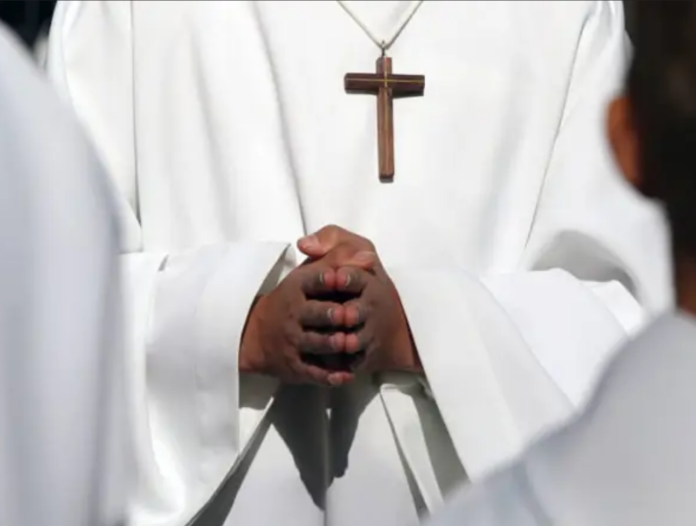A Jesuit priest has been accused of inviting two nuns to partake in a “Holy Trinity” threesome — and is now facing allegations of sexual and spiritual abuse dating back decades.
A former nun claims that Marko Ivan Rupnik used his “psycho-spiritual” control over her some three decades ago in order to make her watch pornographic films and have group sex sessions that he said would have religious significance.
Rupnik, 68, was a spiritual director of a convent in Slovenia and has created mosaics for churches including a papal chapel at the Vatican.
The former nun told the Italian newspaper Domani that “Father Marko started slowly and sweetly getting inside my psychological and spiritual world, exploiting my uncertainties and fragility and using my relationship with God to push me into sexual experiences with him,” according to the Daily Mail.

She said that during her time at the Solvenian convent, between 1987 and 1994, Rupnik groomed her, had sex with her and bullied her into staying silent about the abuse.
The former nun also claimed Rupnik had asked her and another nun to have a threesome with him, saying they would replicate the three-way relationship among God the Father, Jesus and the Holy Spirit.
Rupnik abused as many as 20 women, the woman claimed. She said her first complaint about his abuse was in 1994, but it was ignored by Rupnik’s followers in both Slovenia and Rome.
“It was truly an abuse of conscience,” she said.

Following an investigation, the claims of the women about Rupnik were found to be true.
The women who had accused Rupnik had “seen their lives ruined by the evil suffered and by the complicit silence” of the Church, Bishop Daniele Libanori said in a letter on Sunday.
He urged members of the Church who hid Rupnik’s crimes to “humbly ask the world to forgive the scandal.”
The Vatican’s Congregation for the Doctrine of the Faith excommunciated Rupnik in May 2020, then lifted it that same month and declined to prosecute Rupnik even after nine women came forward a year later with similar allegations.
The congregation, which is headed by Jesuits, said the cases fell outside the statute of limitations and were too old to prosecute because they mainly took place in the ’90s.

